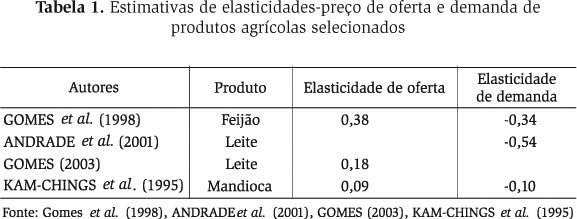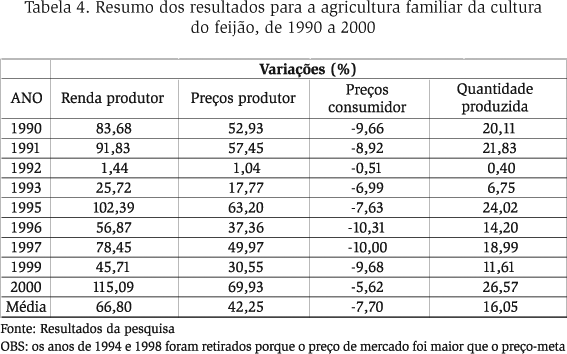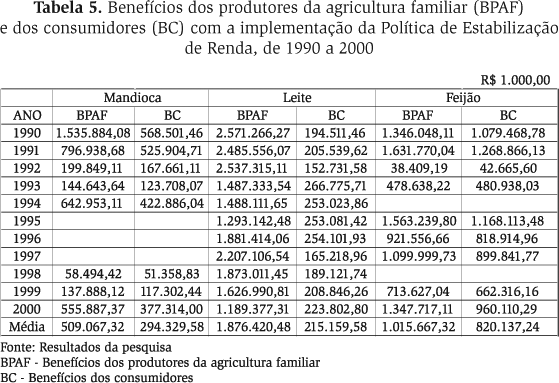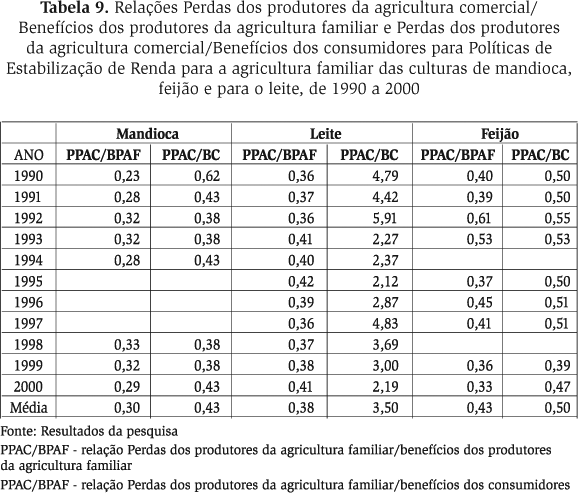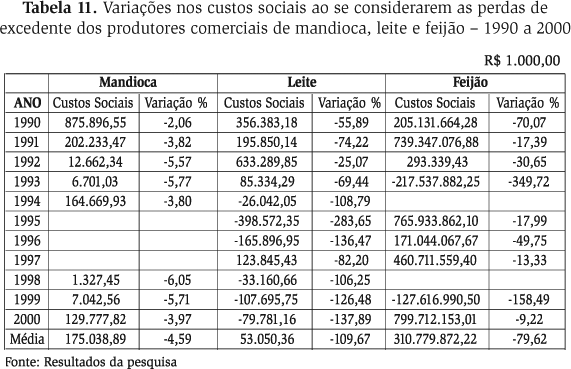For decades, the Brazilian agriculture sector has suffered strong income transfers to many of the country's other economic sectors, which caused the impoverishment of many Brazilian farmers. Government sponsored rural credit assistance programs have somewhat redressed this inequity and ameliorated the farmer's plight. However, due to the structure of these credit assistance programs, the majority of their benefits have gone to the country's largest agricultural producers, thereby increasing income disparity found between family and commercial farms. New policies are needed that actually assist the majority of those that work in the Brazilian agriculture sector: the family farmers. This work evaluates effects of implementation of an Income Stabilization Policy (ISP) intended to support family farmers, focusing on cassava, milk, and bean producers. The evaluation is based on the costs and benefits of ISP, with reference to the theory of economic surplus. This article also considers the policy's negative effect on the surplus generated by commercial producers. Study results indicate that implementation of the proposed ISP would increase the prices received for cassava, milk and beans, improve the income of Brazilian family farmers producing these products, and lead to consumer gains that more than offset the losses suffered by large, commercial agriculture producers.
ISP; cassava; milk and bean; family agriculture



